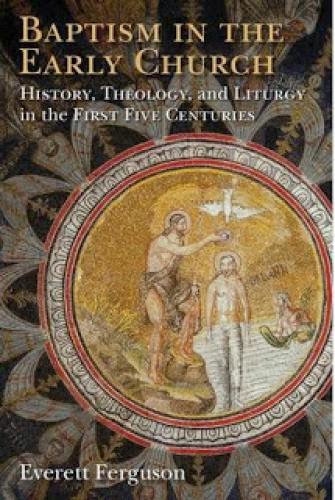
The most plausible explanation for the origin of infant baptism is found in the emergency baptism of sick children expected to die soon so that they would be assured of entrance into the kingdom of heaven. There was a slow extension of baptizing babies as a precautionary measure. It was generally accepted, but questions continued to be raised about its propriety into the fifth century. It became the usual practice in the fifth and sixth centuries. (pp. 856, 857)On the "mode of baptism", he writes:The comprehensive survey of the evidence compiled in this study give a basis for a fresh look at this subject and seeks to give coherence to that evidence while addressing seeming anomalies. The Christian literary sources, backed by secular word usage and Jewish religious immersions, give an overwhelming support for full immersion as the normal action. Exceptions in cases of a lack of water and especially of sickbed baptism were made.
Submersion was undoubtedly the case for the fourth and fifth centuries in the Greek East and only slightly less certain for the Latin West. Was this a change from an earlier practice, a selection out of options previously available, or a continuation of the practice of the first three centuries? It is the contention of this study that the last interpretation best accords with the available facts. Unless one has preconceived ideas about how an immersion would be performed, the literary, art, and archaeological evidence supports this conclusion. (p. 857)There are some interesting comments at Taylor's site.
[Note: I am a Baptist who believes that a similar evolution happened with the shift of Christian worship from the seventh day to the first, and that the Scriptural authority for that change is at least as feeble as that for infant baptism. It would be great to have a genuinely objective and scholarly examination of that question. Almost everything I've seen addressing the issue has been polemical. I realize that not all Christian traditions view Scripture as the sole authority for their practices, but that "is "supposed to be a fundamental principle for Protestants. (To preclude any misunderstanding - Seventh Day Baptists are not among those who believe that seventh-day Sabbath keeping is the mark of any kind of special status.)]
Between Two Worlds: Ferguson on Infant Baptism and the Mode of Baptism


















